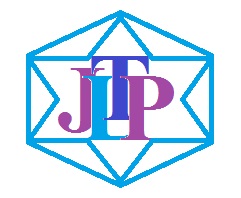Application of Test Instrument Designs for Momentum and Impuls In Achieving The Conceptual and Procedural Knowledge of High School Students
DOI:
https://doi.org/10.24114/jltp.v1i1.14179Keywords:
instrument, test, conceptual, proceduralAbstract
This study aims to develop momentum and impulse material test instruments on the achievement of high school students' conceptual and procedural knowledge learning outcomes. The research method used in the design of test instruments is to determine the purpose of the test, compile the grid, choose the form of the test instrument, determine the length of the test instrument, validate the test and test the test to find out the test results. The test instrument was used to assess students' conceptual and procedural knowledge abilities on the material of momentum and impulses. The subject of the study was the test instrument. This research successfully developed a test instrument for momentum and impulse material on the achievement of learning outcomes of high school students' conceptual and procedural knowledge.References
Adibah, F. (2015). Kreativitas siswa SMA Dalam pemecahan masalah matematika ditinjau dari perbedaan gaya kognitif field dependent dan field independent. Jurnal Widyaloka IKIP Widyadarma Surabaya. 2(2), hlm 111-124.
Anderson, L.W., Krathwohl, D.R. (2001). A Taxonomy for Learning, Teaching, and Assesing: A Revision of Bloom™s Taxonomy of Educational Objectives. New York: Addision Wesley Longman, Inc.
Arikunto, S. (2017). Dasar-dasar Evaluasi Pendidikan. Jakarta: BumiAksara.
Asmida, sugiatno., Nursangaji A. (2016). Pemahaman konseptual dan kelancaran prosedural siswa dalam operasi hitung bilangan bulat di sekolah menengah pertama. Jurnal Pendidikan dan Pembelajaran UNTAN, 5(6), hlm 1-14.
Badjeber, R., Mailili, Wahyuni H. (2018). Analisis Pengetahuan Prosedural Siswa Pada Materi Sistem Persamaan Linear Dua Variabel ditinjau dari Gaya Kognitif. JPPM. 11(2). hlm 41-53.
Depdiknas. (2008). Panduan Penulisan Butir Soal. Jakarta: Gramedia Pustaka Utama.
Fiantika, F. R. (2017). Representation Elements of Spatial Thinking. Thr3rd Internasional Conference on Mathematics, Science and Education. IOP Journal of Physics: Conference Series Vol. 824 No. 1.
Johson, B. R., Schneider, M. (2012). Developing Conceptual and Procedural Knowledge of Mathematics. Oxford University Press
Kusaeri., Suprananto. (2012). Pengukuran dan Penilaian Pendidikan. Yogyakarta: Graha Ilmu.
Lusiana, R. (2017). Analisis kesalahan Mahasiswa dalam memecahkan masalah pada materi himpunan ditinjau dari gaya kognitif. Jurnal Penelitian dan Pembelajaran Matematika, 10(1), hlm 24-29.
Lichtenberger, A., Wagner, C., Hofer, S, I., Sterm, E., & Vaterlaus, A. (2017). Validation And Structural Analysis Of The Kinematics Concept Test.Physical Review Physics Education Research, 13(1), 0010115.
Mahaputri, Ni Luh Putu., Dantes, Nyoman., Sadia, Wayan. (2013). œPengembangan Tes Prestasi Belajar Berbasis Taksonomi Anderson Dan Krathwohl Pada Kompetensi Dasar Fisika SMK Kelas X Semester Ganjil se-Kota Singaraja. Jurnal Penelitian dan Evaluasi Pendidikan. Vol. 3.
Mardapi, D., Kumaidi., Kartowagiran, B. (2011). Pengembangan Instrumen Pengukuran Hasil Belajar Nirbias dan Terskala Baku. Jurnal Penelitian dan Evaluasi Pendidikan, 15(2) hlm 326-341.
Mendikbud. (2013). PERMENDIKNAS RI No. 20 tentang Standar Penilaian Pendidikan.
Mendiknas. (2007). PERMENDIKNAS RI No 20 tentang Standar Penilaian Pendidikan.
Murtafiah., Amin, N. (2018). Pengaruh gaya kognitif dan gender terhadap kemampuan pemecahan masalah matematika. Jurnal Penelitian dan Pembelajaran Matematika,11(1), hlm 75-82.
Pusat Penilaian Pendidikan Balitbang-Depdiknas. (2007). Panduan Penulisan Soal Pilihan Ganda. Depdiknas. Jakarta.
Rittle-Johnson, B., Schneider, M. (2015). Developing conceptual and procedural knowledge of mathematics, In R.C. Kadosh & A.Dowker (Eds.), Oxford handbook of numerical cognition (pp. 1102-1120). Oxford University Press.
Solso, R.L., Maclin, O.H., Machlin, M.K. (2008). Psikologi Kognitif. Jakarta: Erlangga.
Star, J. W., Stylianides, G. J. (2012). Procedural and Conceptual Knowledge Exploring the Gap Between Knowledge Type and Knowledge Quality. Canadian Journal of Science, Technology Education. 13(2) 169-181.
Sudjana, Nana. (2012). Penelitian Hasil Proses Belajar Mengajar. Bandung: Remaja Rosda Karya.
Sudijono, A. (2015). Pengatar Evaluasi Pendidikan. Jakarta: Raja Grafindo Persada.
Suwarto. (2009). Pengembangan Tes dan Analisis Hasil Tes yang Terintegrasi dalam Program Komputer. Jurnal Penelitian dan Evaluasi Pendidikan, 12(1) hlm 40-56.
Sugiyono. (2015). Metode Penelitian Pendidikan Pendekatan Kuantitatif,
Kualitatif, dan R & D. Bandung : Alfabeta.
Downloads
Published
Issue
Section
License
Copyright (c) 2019 Journal of Learning and Technology in Physics

This work is licensed under a Creative Commons Attribution 4.0 International License.



